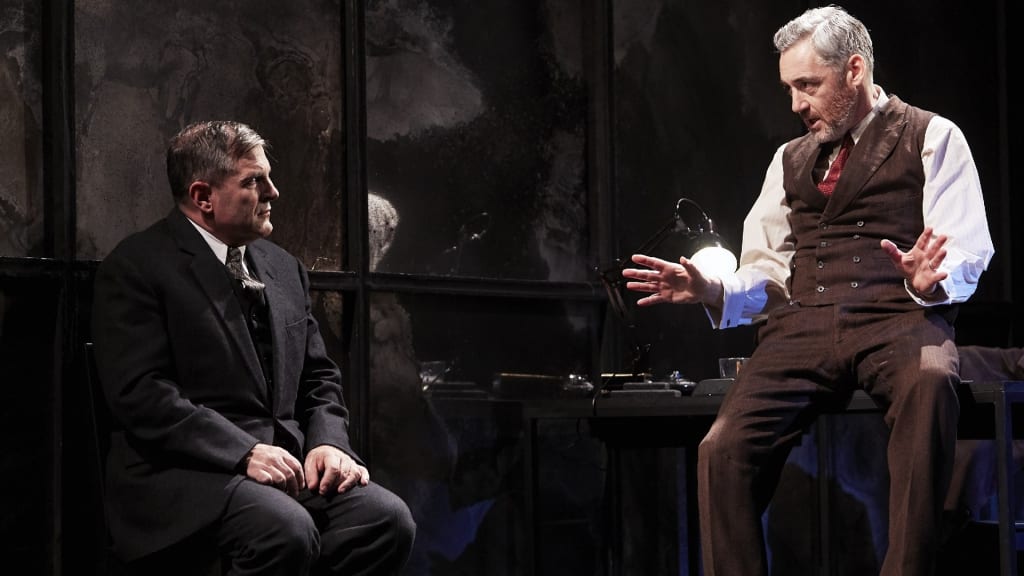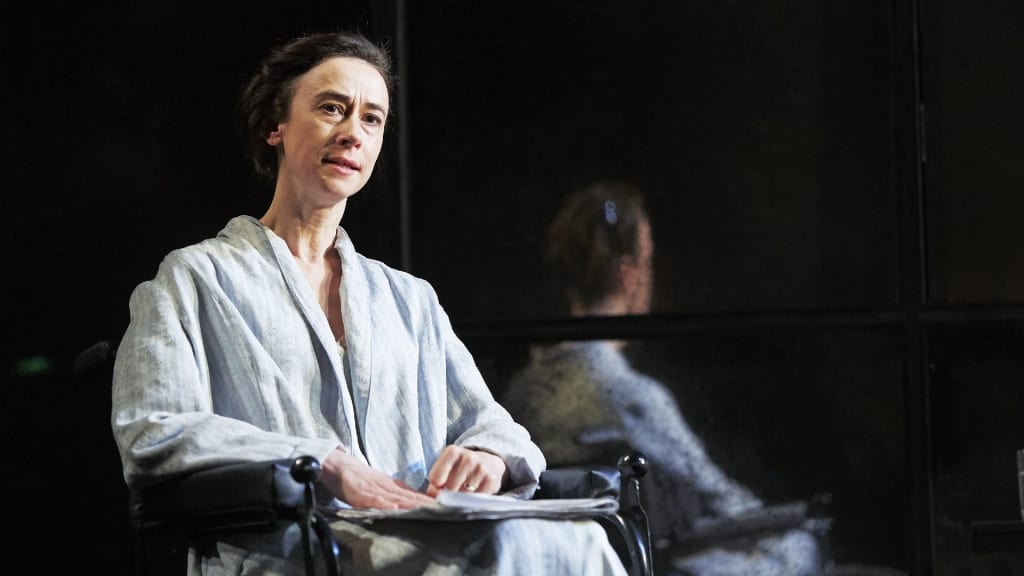Arthur Miller is the Pulitzer and Tony winning playwright of ‘Death of A Salesman’, ‘A View From the Bridge,’ ‘The Crucible’ and ‘All My Sons’. Broken Glass was first performed in 1994 and received the 1995 Laurence Olivier Award for Best New Play. It is one of Arthur Miller’s most personal and revealing productions, dealing with marital relations and his own struggles with identity, themes that had preoccupied him his entire life.
Broken Glass takes place in New York City at the same time Kristallnacht (the Night of Broken Glass) took place in Nazi Germany. The names derives from the shards of glass that littered the streets after a pogrom against Jews between the 9 – 10th of November 1938: Jewish owned shops, business, and synagogues were smashed and 30, 000 Jews were sent to concentration camps. Slyvia Gelberg (Amy Marston) becomes paralysed from the waist down after reading these atrocities in the newspaper. Her husband, the only Jewish employee in Brooklyn Guarantee and Trust, calls Dr Hyman (Michael Higgs) for an assessment of her crippling condition that has caused him so much angst. He suspects Slyvia Gelberg is suffering from a case of hysterical paralysis brought on by the horrifying events in the newspaper. However, as time goes on, he begins to realize that Philip Gelberg’s (Michael Matus) conflicted feelings about his own identity and the supposed lack of marital relations in their marriage could also be part of the problem – provoking a feeling in Sylvia that despite everything else going on, that she too is living with an enemy.

The set is very simple in that it is painted rustic grey. The stage rotates with one side displaying Slyvia and Philip’s bedroom, and the other side Dr Hyman’s office. While a bed occupies centre stage in the former, a desk replaces it in the latter. A see through box with a cello inside plays mournful, melancholic music in between scenes, creating a sombre mood. The use of strobe lights used to symbolize Philip’s heart attack is imaginative but perhaps a little over the top. The costumes are very reminiscent of the late 1930s and give a wonderful, vintage feel to the play.
The actors work brilliantly together. Matus’ exasperated, nervousness is a man struggling to comes to terms with his identity. Marston portrays the deep seated anger she feels against her husband and the feeling that she wasted ‘a whole life.’ The pain in her voice when she describes how she ‘gave it away like a couple of pennies – I took better care of my shoes’ echoes a woman who is tired of life. She finds a new release through Dr Hyman who seems to understand her on a deeper level than her husband ‘it’s like she’s connected to some…some wire that goes half around the world, some truth that other people are blind to.’ He realizes that perhaps Sylvia is onto something, that maybe a darker force will descend the world while everyone turns a blind eye, denies the truth of their reality, which even now rings true to this day…

